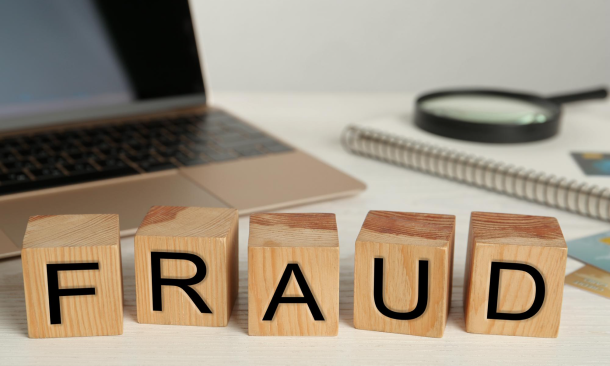E-commerce and online businesses are ever-expansive. Here, transactions occur with just a click of a button. Thanks to such convenience, it’s easy to see why online businesses are doing so well at present.
According to Statista, revenue in the global e-commerce market is to reach a value of $3,226 billion by 2024. However, the prevalence of fraud has become a pressing concern for such online businesses.
According to Ravelin, e-commerce fraud surges by more than 50 percent every year. These fraudulent activities include everything from unauthorized purchases to credit card fraud. Among the various forms of fraudulent activities, friendly fraud stands out as a particularly vexing challenge.
Despite its seemingly innocuous name, friendly fraud can have profound and detrimental effects on the profitability and reputation of online enterprises. Here are six reasons why friendly fraud poses a significant obstacle for online businesses.
#1 Misinterpretation of Disputes
Friendly fraud occurs when a customer disputes a legitimate transaction. They often claim that they did not make the purchase or did not receive the expected goods or services.
Unlike traditional forms of fraud perpetrated by malicious actors, friendly fraud typically involves genuine customers who exploit the chargeback process for personal gain.
However, according to Ethoca, financial institutions may not always distinguish between genuine disputes and instances of friendly fraud. This can cause erroneous chargebacks that burden online businesses with unwarranted financial losses.
#2 Financial Losses and Increased Operational Costs

The repercussions caused by friendly fraudsters extend beyond the immediate loss of revenue from chargebacks. Online businesses must also contend with the associated costs of investigating and resolving disputes, which can quickly accumulate.
Moreover, repeated chargebacks can result in the imposition of penalties and higher transaction fees imposed by payment processors, further eroding profit margins. As businesses allocate resources to combat friendly fraud, they divert valuable time and manpower away from core operations, hindering growth and innovation.
#3 Damage to Reputation and Customer Trust
Friendly fraud not only undermines the financial stability of online businesses but also jeopardizes their reputation and erodes customer trust. When customers exploit the chargeback mechanism to obtain refunds unjustly, it reflects poorly on the integrity of the business.
Moreover, the inconvenience and frustration experienced by legitimate customers due to stricter return policies and heightened scrutiny can drive them away from competitors. This can result in long-term damage to brand loyalty and customer retention.
#4 Inadequate Fraud Prevention Measures
Despite advancements in fraud detection technology and risk management strategies, many online businesses remain ill-equipped to combat the complexities of friendly fraud effectively.
Traditional fraud prevention measures such as card security codes (CVV) may offer limited protection against friendly fraud, as perpetrators often possess valid account information. Moreover, the anonymity afforded by online transactions makes it challenging to verify the identity and intentions of customers, leaving businesses vulnerable to exploitation.
#5 Legal and Regulatory Compliance Challenges
The proliferation of friendly fraud has prompted regulatory bodies and industry associations to impose stricter guidelines and compliance requirements on online businesses. Failure to comply with these regulations exposes businesses to legal liabilities and financial penalties and also tarnishes their reputation in the eyes of consumers.
Consequently, online enterprises must navigate a complex web of legal obligations and regulatory frameworks to mitigate the risks associated with friendly fraud. This only further complicates their operations and increases compliance costs.
#6 Need for Collaborative Solutions
Addressing the menace of friendly fraud requires an approach that transcends individual businesses and encompasses collaboration among stakeholders across the e-commerce ecosystem. Payment processors, financial institutions, and industry associations must work together to develop standardized protocols and best practices for fraud prevention and dispute resolution.
Additionally, online businesses can leverage data analytics and machine learning algorithms to identify patterns of fraudulent behavior and proactively mitigate risks before they escalate. According to BizTech Magazine, major banks and financial institutions in the US are already using data analytics for this purpose.
By fostering a culture of transparency and accountability, stakeholders can collectively combat friendly fraud and safeguard the integrity of online commerce. This will allow these online businesses to operate without the fear of having to deal with the legal and financial complexities of friendly fraud.
In conclusion, friendly fraud poses a formidable challenge for online businesses, threatening their financial viability, reputation, and customer trust. To effectively mitigate the risks associated with friendly fraud, businesses must invest in robust fraud prevention measures and foster collaboration across the e-commerce ecosystem.
By addressing these challenges proactively, online enterprises can safeguard their interests and ensure a secure environment for conducting business in the digital age.
Industries Most Susceptible For Friendly Fraud

Friendly fraud is one risk for businessmen in almost every industry. Yet, there are some industries that are more in the eye of risk than others.
Video Gaming
Friendly fraud is a very common problem when it comes to the video gaming industry. This kind of fraud occurs when gamers decide to spend their bucks on upgrade packs to beat a very certain level and then, of course, regret it later. Or, as we have witnessed in multiple headlines in recent years, it may also happen when purchases are made without the permission of the cardholder, for instance, kids using their mother’s car to buy things.
Retail
Online retailers are usually at a constant risk of friendly fraud because of how easy it is for consumers to say that they did not get the items they ordered. The most common ones are the ones where they claim that the item is faulty. The growth of ecommerce because of the COVID-19 pandemic has witnessed multiple instances where friendly fraud has touched new heights.
Travel
While the travel business has always dealt with its share of friendly fraud, the pandemic, over everything, supercharged the risk. Travel companies and airlines went through a wave of chargebacks in the past few years, where travelers looked for ways to get back their money for canceled trips. While most of these chargebacks were legitimate, many could be situations of friendly fraud.
Can You Prevent Friendly Fraud?
When it comes to fraud as a whole, nothing really is totally preventable. But, there are certain measures that may help keep the rates of friendly fraud to a minimum. For businesses with higher chargeback rates, these measures are going to be an important step to bring down this rate.
Authenticating transactions is yet another measure that is going to prevent chargebacks. Analyzing the transaction data will give you a prediction about which transactions may end up being friendly fraud. Then, you can have a chance to challenge these transactions.
A digital fraud tool that uses machine learning or rules might help you stop these suspicious activities before they actually become a dispute.
If the transaction is done already, though, there are still a few steps that you may take. Pre-disputes resolution tools need to form a part of the fraud strategy. This will help in resolving the disputes even before the chargeback process begins.
You may then solve it even before it contributes toward your dispute ratio.
A dispute resolution tool helps you to easily deal with all the chargebacks and increase the chances of winning them. This includes knowing which evidence you need to send for which set of disputes. All of this can be done via an easily understandable dashboard.
Conclusion
Dealing with customer disputes, friendly frauds, and chargebacks is the reality of accepting payments. However, there are a number of tools and tactics that you can easily use to lessen the risks of friendly fraud and each of the costs or complexities involved.
Continue Reading:
- How Do Companies Combat Scams?
- How To Make Sure Your Business Is Prepared For A Risk Assessment
- What To Look For In A Managed SOC Provider: Key Features And Capabilities




Leave A Comment